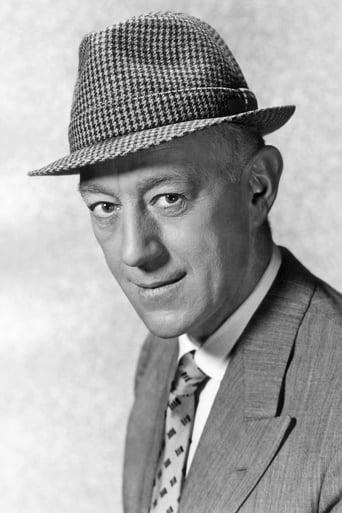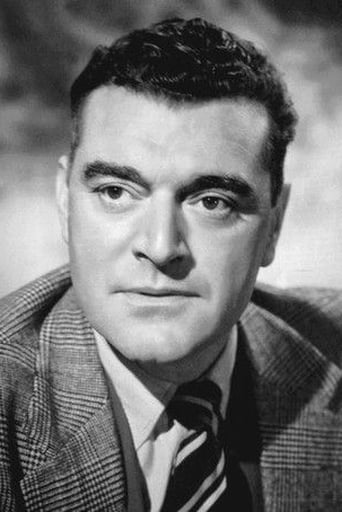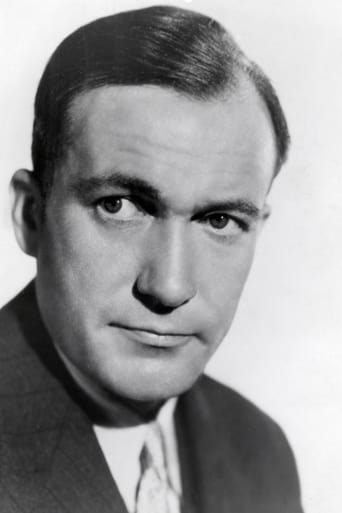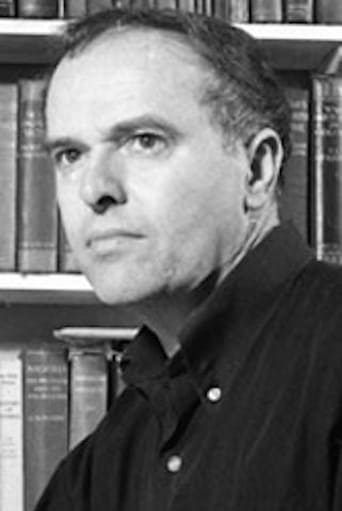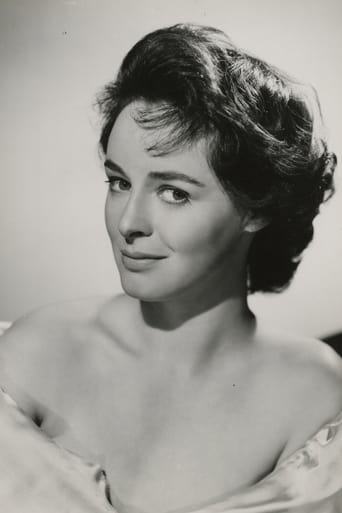Solemplex
To me, this movie is perfection.
AniInterview
Sorry, this movie sucks
Platicsco
Good story, Not enough for a whole film
Kailansorac
Clever, believable, and super fun to watch. It totally has replay value.
Kirpianuscus
because it is a great artistic duel between Alec Guiness and Jack Hawkins, remembering, in few scenes, "Beckett". because the performance of Wilfrid Lawson is really seductive. because it use as symbol, maybe, the example of Jozsef Mindszenty, Archibishop of Esztergom, but, in same measure , it is an inspired story about the conflict between the State and the Church under Communism. it represents one of of films with a precise target. almost a refuge. because it is slow, uncomfortable, simple and far to give answers. one of films who must see it. because it is a large window to the essential things defining each of us.
kapelusznik18
****SPOILERS*** Brought up on charges of treason against the state the Cardinal, Alec Guinness, of an Eastern European communist nation is put through the ringer by his Interrogator, Jack Hawkins, in order to get him to confess to his so-called crimes. The Cardinal who's an old hand at being tortured by the German Gestapo during WWII takes it all in stride not caring what is done to his body but when the Interrogator starts to work on his mind and his life as a young boy in the city fish market he strikes a raw nerve with the Cardinal.The Cardinal has done some bad things, like sticking his hand in the cookie jar, in the past before he became religious and it's his former comrade in arms, against the Nazis, in WWII, the Interrogator who brings those events out into the open. It takes some three months for the Interrogator to get the Cardinal to crack with days of sleep deprivation and weeks of isolation but in the end the Cardinal finally gives in to all of his demands.***SPOILERS*** At his trial the Cardinal confesses to everything, even the Lincoln and Julius Cesar assassinations, under the sun in an open court with those in attendance, mostly the Cardinal's supporters, open mouthed and shocked by his many false and mindless confessions. It didn't take long for the smug with victory Interrogator to realize that all his efforts in getting the Cardinal to confess backfired in his face! The vary fact that the Cardinal so eagerly confessed to all if not even more of the crimes that he was accused of by the state showed the people that he was just playing along with his captors and in fact showing them up for the brutish thugs whom they are. With his conviction thrown out and confessions shown to be total lies and BS it's the Cardinal who in fact got the last laugh not the Interrogator and his superiors. And with that the Cardinal walks out free as a bird or cardinal from prison to the cheers of all the people who were tried to be made out, by the Interrogator, that he betrayed!
Miriam Croucher
'The Prisoner,'is a film version of the play by the same title, and is widely based on the life of Cardinal Mindszenty of Hungary. It addresses the topic of religious freedom and therefore, also authentic human rights. Alec Guinness in the role of a Catholic cardinal and Jack Hawkins as his interrogator who represents an atheist, totalitarian state (i.e. a state under communism) are brilliant. The supporting actors are also excellent. The film is tense; it addresses man's inhumanity to man (Jack Hawkins) and the frailty of the human spirit when it is subjected to physical, emotional and mental torture (Alec Guinness). It is the story of one man's battle to preserve his interior freedom and every man's battle with himself; and it shows how a good man's courage and even his frailty unwittingly change the lives of his interrogator, his jailer and a guard. The film's one weakness was that the cardinal's appearance did not adequately reflect the horrific torture to which he was subjected: though tortured for months on end, he is always clean-shaven and there is no gradual deterioration to give credence to his utter physical and mental exhaustion.That said, I loved the film and found it very moving, particularly the scene close to the end when the cardinal looks into the guard's eyes and humbly says 'Try not to judge the Priesthood by the priest.' (It is necessary to have watched the film to understand the poignancy of this remark which cleverly responds to a comment made earlier by the guard).
Bill Slocum
Even for a jailroom drama with a closed-in set and a minimum of exposition, "The Prisoner" is one clenched movie.In an unnamed city in an unnamed country, an unnamed cardinal (Alec Guinness) is interrogated for crimes against the state. His unnamed interrogator (Jack Hawkins) sets the case for the audience in unusually stark terms."You represent a religion which provides an organization outside the state," he says.The cardinal states his position as boldly: "I am difficult to trap and impossible to persuade. I am tenacious, wary, and proud."Obviously based on the repression of Catholic leaders in Eastern Europe after World War II, "The Prisoner" suffers from the sin of its obviousness. Everything about this film seems designed to fit into the right round holes. There's a jokey jailer, an overbearing functionary, even a shoehorned romantic subplot.At one point, we see a young man writing the words "Free Beliefs Free Speech" on a wall. I guess he was too preoccupied to share what those beliefs might be. No matter; before he finishes a policeman walks up and shoots him, I guess because it is more symbolic than arresting him.The stand-off between Guinness and Hawkins is just as tightly regimented, with obvious bits of symbolism designed to make a case any sentient being has picked up on five minutes in. The Interrogator doodles a spider web during his questioning of the Cardinal. The Interrogator plays chess before we cut to the Cardinal walking across flagstones. "God give me cunning against your skill" and "You've defeated me" are actual lines in the movie. The movie doesn't end as one might expect; it avoids this trap with a finale that doesn't make any sense at all.Apparently all this struck some people as controversial back in 1955, as "The Prisoner" was banned from a couple of major film festivals. If it was released today, it would be easier to understand the hostility, even if the role of faith in this film is muted to the point of insignificance.Given the historical and personal background of this project, so close to the heart of Guinness who would convert to Catholicism a year after this movie, it is surprising to see Sir Alec playing the part so awfully. He's a serene statue through the first half, and then a shrieking shamble in the second, even beating his head with his fists.The only plus in the film is Wilfred Lawson's crusty jailer, called "Waldo" in the subtitles though I think that's someone mishearing "Warden." He has a couple of nice speeches, including one when he remembers a boyhood cuckoo clock with a juicy chuckle. The bits we get of Lawson show director Peter Glenville had the good sense to give room to at least some of his actors. But the Warden's a minor figure in a film that doesn't do anything worthwhile with anyone else.
